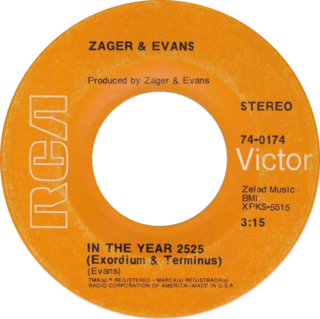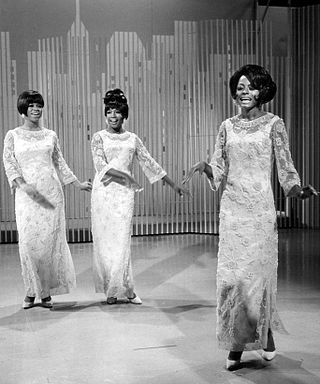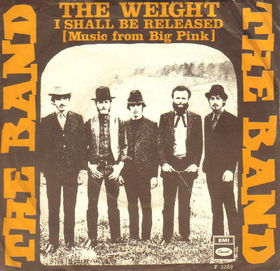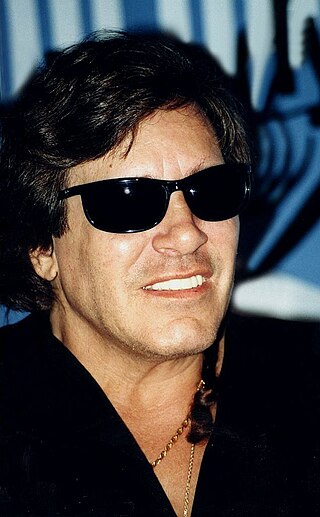


This list is of Billboard magazine's Top Hot 100 songs of 1968. [1] The Top 100, as revealed in the edition of Billboard dated January 11, 1969 [2] is based on Hot 100 charts from the issue dates of January 6 through December 14, 1968.



This list is of Billboard magazine's Top Hot 100 songs of 1968. [1] The Top 100, as revealed in the edition of Billboard dated January 11, 1969 [2] is based on Hot 100 charts from the issue dates of January 6 through December 14, 1968.

"Gentle on My Mind" is a song that was written and originally recorded by John Hartford, and released on his second studio album, Earthwords & Music (1967). Hartford composed the song after watching Doctor Zhivago in 1966, as he was inspired by the film and his own personal experiences. The lyrics describe the reminiscences of lost love of a man as he travels through the country. An obituary for Hartford provided more specifics, indicating that the lyrics are "about a hobo reminiscing about a lost love". The following year, Hartford released the song as a single on RCA Records.

"In the Year 2525 " is a 1969 hit song by the American pop-rock duo of Zager and Evans. It reached number one on the Billboard Hot 100 for six weeks commencing July 12, 1969. It peaked at number one in the UK Singles Chart for three weeks in August and September that year. The song was written and composed by Rick Evans in 1964 and originally released on a small regional record label in 1968. It was later picked up by RCA Records. Zager and Evans disbanded in 1971.

"Light My Fire" is a song by the American rock band the Doors. Although it was principally written by the band's guitarist, Robby Krieger, songwriting was credited to the entire band. Recognized as one of the earliest examples of psychedelic rock, it was recorded in August 1966 and released in January 1967 on their eponymous debut album. Due to its erotic lyrics and innovative structure, the track has come to be regarded as synonymous with the '60s psychedelic and sexual revolutions.

"Love Child" is a 1968 song released by the Motown label for Diana Ross & the Supremes. The second single and title track from their album Love Child, it became the Supremes' 11th number-one single in the United States, where it sold 500,000 copies in its first week and 2 million copies by year's end.

American girl group The Supremes have released 29 studio albums, four live albums, two soundtrack albums, 32 compilation albums, four box sets, 66 singles and three promotional singles. The Supremes are the most successful American group of all time, and the 26th greatest artist of all time on the US Billboard charts; with 12 number-one songs on the Billboard Hot 100 and three number-one albums on the Billboard 200. The Supremes were the first artist to accumulate five consecutive number-one singles on the US Hot 100 and the first female group to top the Billboard 200 albums chart with The Supremes A' Go-Go (1966). In 2017, Billboard ranked The Supremes as the number-one girl group of all time, publishing, 'although there have been many girl group smashes in the decades since the Supremes ruled the Billboard charts, no collective has yet to challenge their, for lack of a better word, supremacy.' In 2019, the UK Official Charts Company placed 7 Supremes songs—"You Can't Hurry Love" (16), "Baby Love" (23), "Stop! In the Name of Love" (56), "Where Did Our Love Go?" (59), "You Keep Me Hangin' On" (78), "Come See About Me" (94) and "Stoned Love" (99)—on The Official Top 100 Motown songs of the Millennium chart, which ranks Motown releases by their all-time UK downloads and streams.

"MacArthur Park" is a song written by American singer-songwriter Jimmy Webb that was recorded first by Irish actor and singer Richard Harris in 1968. Harris's version peaked at number two on the Billboard Hot 100 chart and number four on the UK Singles Chart. "MacArthur Park" was subsequently covered by numerous artists, including a 1970 Grammy-winning version by country music singer Waylon Jennings and a number one Billboard Hot 100 disco arrangement by Donna Summer in 1978. Webb won the 1969 Grammy Award for Best Arrangement Accompanying Vocalist(s) for the Richard Harris version.

"The Weight" is a song by the Canadian-American group the Band that was released as a single in 1968 and on the group's debut album Music from Big Pink. It was their first release under this name, after their previous releases as Canadian Squires and Levon and the Hawks. Written by Band member Robbie Robertson, the song is about a visitor's experiences in a town mentioned in the lyric's first line as Nazareth. "The Weight" has significantly influenced American popular music, having been listed as No. 41 on Rolling Stone's 500 Greatest Songs of All Time published in 2004. Pitchfork Media named it the 13th best song of the 1960s, and the Rock and Roll Hall of Fame named it one of the 500 Songs that Shaped Rock and Roll. PBS, which broadcast performances of the song on Ramble at the Ryman (2011), Austin City Limits (2012), and Quick Hits (2012), describes it as "a masterpiece of Biblical allusions, enigmatic lines and iconic characters" and notes its enduring popularity as "an essential part of the American songbook."

"Medley: Aquarius/Let the Sunshine In " is a medley of two songs written for the 1967 musical Hair by James Rado and Gerome Ragni (lyrics), and Galt MacDermot (music), released as a single by American R&B group the 5th Dimension. The song spent six weeks at number one on the US Billboard Hot 100 pop singles chart in the spring of 1969 and was eventually certified platinum in the US by the RIAA. Instrumental backing was written by Bill Holman and provided by session musicians commonly known as the Wrecking Crew. The actual recording was novel at the time, being recorded in two cities, Los Angeles and Las Vegas, and being mixed down to a final version later.

Sugar, Sugar is a song written by Jeff Barry and Andy Kim. It was originally recorded by the Archies, a fictional band of studio musicians linked to the 1968–69 US Saturday morning TV cartoon The Archie Show, inspired by the Archie Comics. In the autumn of 1969 the single topped both Billboard's Hot 100 and the UK Singles Chart, ranking number one for the year in both America and Britain. "Sugar, Sugar" is the most successful bubblegum pop single of all time, and is widely regarded as the apotheosis of the late-1960s/early-1970s bubblegum music genre. In mid-1970 R&B/soul singer Wilson Pickett achieved success on both the US soul and pop charts with a cover version.

"I Write the Songs" is a popular song written by Bruce Johnston in 1975 and released on his album Going Public in 1977. Barry Manilow's version reached number one on the Billboard Hot 100 chart in January 1976 after spending two weeks atop the Billboard adult contemporary chart in December 1975. It won a Grammy Award for Song of the Year and was nominated for Record of the Year in 1977. Billboard ranked it as the No. 13 song of 1976.

"Angel of the Morning" is a popular song written by Chip Taylor, originally recorded by Evie Sands but which first charted with a version by Merrilee Rush. The song has been covered by many artists including Chrissie Hynde, Dusty Springfield, P. P. Arnold, Connie Eaton, Mary Mason, Guys 'n' Dolls, Melba Montgomery, Olivia Newton-John and most recognizably by Juice Newton.

American vocalist Frank Sinatra recorded 59 studio albums and 297 singles in his solo career, spanning 54 years.

"Since I Don't Have You" is a song written and composed by Jackie Taylor, James Beaumont, Janet Vogel, Joseph Rock, Joe Verscharen, Lennie Martin, and Wally Lester. It was first a 1958 hit single for the doo-wop group the Skyliners on the Billboard Hot 100. Country music singer Ronnie Milsap had a hit with the song in 1991. American hard rock band Guns N' Roses also had some success in 1994 with their version of the song which reached the top 10 on the UK Singles Chart.
"Somos Novios" is a song first recorded by Mexican songwriter Armando Manzanero in 1968. Perry Como recorded an English version of "Somos Novios" with original English lyrics titled "It's Impossible", which was a top 10 hit in the US and the UK.
"Let's Get Together", also known as "Get Together" and "Everybody Get Together", is a song written in the mid-1960s by American singer-songwriter Chet Powers, from psychedelic rock band Quicksilver Messenger Service. A hit version by the Youngbloods, included on their 1967 debut album The Youngbloods, peaked at No. 5 on the Billboard Hot 100 in 1969.

"Games People Play" is a song written, composed, and performed by American singer-songwriter Joe South, released in August 1968. It entered the Billboard Hot 100 in January 1969 and won the 1970 Grammy Awards for both Best Contemporary Song and the Song of the Year.

"Galveston" is a song written by Jimmy Webb and popularized by American country music singer Glen Campbell who recorded it with the instrumental backing of members of The Wrecking Crew. In 2003, this song ranked number 8 in CMT's 100 Greatest Songs in Country Music. Campbell's version of the song also went to number 1 on the country music charts. On other charts, "Galveston" went to number 4 on the Billboard Hot 100 and number one on the "Easy Listening" charts. It was certified gold by the RIAA in October 1969.
"Little Green Apples" is a song written by Bobby Russell that became a hit for three different artists, with their three separate releases, in 1968. Originally written for and released by American recording artist Roger Miller, "Little Green Apples" was also released as a single by American recording artists Patti Page and O. C. Smith that same year. Smith's version became a #2 hit on both the Billboard Hot 100 and Billboard Hot Rhythm & Blues Singles charts, while Miller's version became a Top 40 hit on the Hot 100 as well as the UK Singles Chart. Page's version became her last Hot 100 entry. The song earned Russell a Grammy Award for Song of the Year and for Best Country Song. In 2013, "Little Green Apples" was covered by English recording artist Robbie Williams featuring American recording artist Kelly Clarkson, which became a top 40 hit in Mexico.

José Feliciano has recorded 56 studio albums, most of which are primarily sung in either English or Spanish. Three of his releases received the standard Gold certification from the Recording Industry Association of America for sales of 500,000 units. Two of his other albums were awarded Los Premios de Oro y De Platino from the RIAA: Señor Bolero went double Platinum in 2004 for surpassing sales of 120,000 units, and José Feliciano y Amigos went Gold in 2008 after selling 30,000 copies.
"Your Time Hasn't Come Yet, Baby" is a song written by Joel Hirschhorn and Al Kasha and recorded by Elvis Presley for the 1968 motion picture Speedway. It was sung by Presley in the movie and also appeared on its soundtrack album.